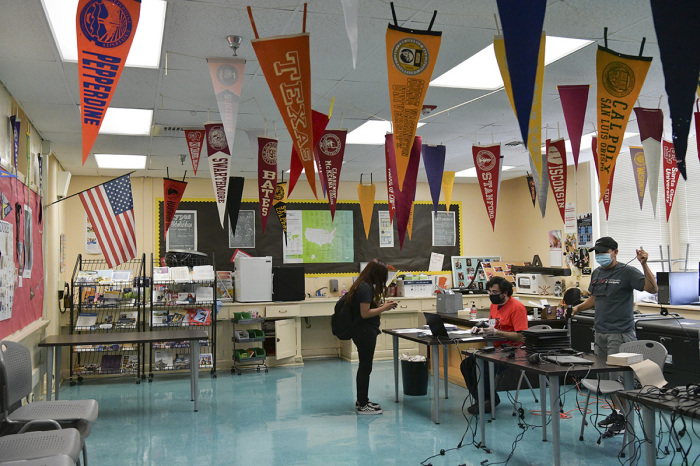Calif. can't stop parents from using state special ed funds at religious schools: appeals court

California cannot prohibit a group of Orthodox Jewish parents from using state funds to place their children in special education programs of a sectarian nature, an appeals court has ruled.
A three-judge panel of the United States Court of Appeals for the Ninth Circuit ruled Monday that California cannot enforce a provision in the Individuals with Disabilities Education Act prohibiting state funds from going to religious schools.
Circuit Judge Kim Wardlaw, a Clinton appointee, authored the panel opinion in the case, known as Loffman v. California Department of Education et al., writing that the state failed to prove that the "nonsectarian requirement is narrowly tailored to serve that interest" of government neutrality.
“Parent Plaintiffs are required to choose between the special education benefits made available through public school enrollment (and subsequent referral to a [non-public, non-sectarian school]) and education in an Orthodox Jewish setting,” wrote Wardlaw.
“Because this presents a ‘tendency to coerce’ them ‘into acting contrary to their religious beliefs,’ we find that Parent Plaintiffs have alleged a cognizable burden on their free exercise of religion.”
Although largely ruling in favor of the plaintiffs, the appeals court did rule against the Loffman family specifically, with Wardlaw concluding that “the complaint contains insufficient factual allegations to plausibly demonstrate that the nonsectarian requirement has any effect on” their child’s “educational placement.”
The panel sent the case back to the district court to consider the complaint claims while vacating the lower court’s previous denial of the plaintiffs’ motion for a preliminary injunction.
Becket, a legal group specializing in religious liberty cases that helped to represent the Jewish parents, released a statement Monday celebrating the unanimous decision.
“This is a massive win for Jewish families in California,” said Eric Rassbach, vice president and senior counsel at Becket, as quoted in the press release.
“It was always wrong to cut Jewish kids off from getting disability benefits solely because they want to follow their faith. The court did the right thing by ruling against California’s bald-faced discrimination.”
The parents filed their complaint in March of last year, naming as defendants the California Department of Education, Superintendent of Public Instruction Tony Thurmond, the Los Angeles Unified School District and Anthony Aguilar, chief of special education, equity and access.
The complaint alleged that defendants violated the First Amendment's Free Exercise Clause and the 14th Amendment's Equal Protection Clause by refusing to provide funds for parents to send their children with special needs to Orthodox Jewish schools. The California Education Code mandates that schools that receive federal IDEA funding be "nonsectarian.”
In August of last year, U.S. District Judge Josephine Staton ruled against the plaintiffs, concluding in part that the complaint “mischaracterizes the nature of the available benefits” and that “California’s nonsectarian requirement applies to schools, not IDEA-eligible children and their parents.”
“California’s NPS system is not a mechanism for subsidizing the education of IDEA-eligible children at private schools,” wrote Staton.
“Rather, it is a regime whereby the state contractually delegates its responsibility to educate eligible children to private institutions in accordance with IDEA requirements and the same state educational standards that apply to the [local education agency] itself.”




























